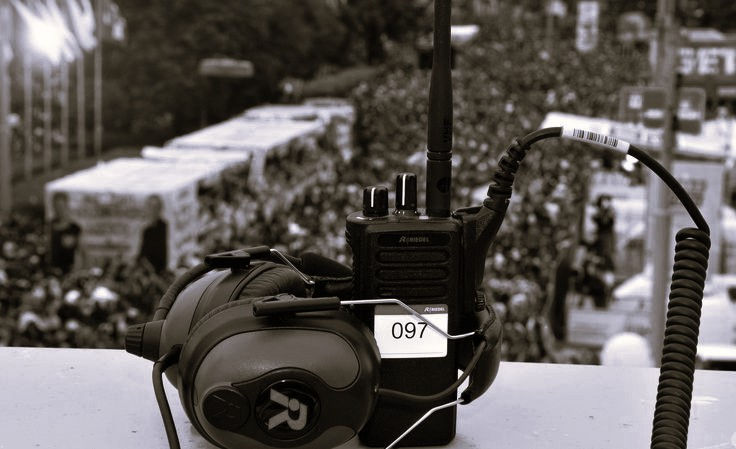Doormen as the First Line of Defence: Customer Service Meets Security
- PPSGroup
- Nov 3, 2025
- 3 min read
The doorman holds one of the most visible yet misunderstood roles in modern security. Positioned at the point where customer service and protection intersect, the doorman shapes first impressions, reinforces safety, and maintains the smooth flow of daily activity.

In Saudi Arabia, where luxury properties and commercial buildings are defined by precision, hospitality, and discretion, doormen embody both professionalism and vigilance. They welcome guests warmly while ensuring that only authorised individuals gain entry - a delicate balance between approachability and authority that defines their profession.
Why Doormen Matter in Today’s Security Landscape
While technology plays a crucial role in modern security, it cannot replace the human intuition that skilled doormen bring to their work. Cameras record events; doormen prevent them. Their ability to observe subtle details - nervous behaviour, irregular movements, hesitation, or inconsistencies in visitor stories - makes them irreplaceable.
In a world focused increasingly on digital defence, physical access points remain a major area of vulnerability. A professional doorman provides the situational awareness that no algorithm can replicate. They identify risks early, act discreetly, and coordinate with security personnel before issues escalate.
The Dual Role: Service and Protection
The most effective doormen master the art of balancing two core functions: providing seamless customer service while maintaining constant security awareness.
When residents return home, they expect a polite greeting and assistance with doors or packages. When visitors arrive, they require clear instructions and verification procedures. Deliveries, contractors, and vendors all pass through the doorman’s oversight. Throughout each interaction, the doorman remains alert to potential risks - watching, evaluating, and acting when necessary.
In high-end developments across Saudi Arabia and the UAE, residents expect both luxury and safety. A professional doorman ensures guests feel welcome without ever compromising the building’s security protocols.
A professional doorman consistently:
Welcomes guests courteously while verifying credentials
Assists with packages while inspecting for suspicious items
Provides information confidently without revealing sensitive details
Handles disputes calmly, preventing escalation
Coordinates seamlessly with security personnel when additional support is required
This combination of service and vigilance transforms a routine presence into a critical line of defence.
What Makes an Effective Doorman
Communication and Presence
Strong communication skills define the modern doorman. They interact with residents, guests, vendors, and visitors daily, managing each exchange with professionalism and tact. Clear, polite communication builds trust, while calm enforcement of building rules ensures authority is maintained.
Physical endurance is also essential. The position demands long hours on one’s feet, the strength to assist with heavy doors or luggage, and a polished presentation that reflects the property’s brand image.
Vigilance and Awareness
Vigilance separates good doormen from exceptional ones. They remember familiar faces, notice patterns, and identify inconsistencies. For example, a visitor claiming to meet a resident yet unsure of the unit number may signal a potential threat. Subtle details like these often determine whether an incident is prevented or allowed to unfold.
Training That Builds Excellence
Effective doormen are products of structured, ongoing training. Reputable employers invest in programs that cover both security and hospitality fundamentals, including:
Access control and emergency response procedures
Conflict resolution and de-escalation techniques
Cultural awareness and etiquette training
Professional communication and service excellence
On-the-job training further enhances their performance, allowing doormen to understand building-specific details - resident preferences, parking arrangements, and delivery procedures.
Continuous education ensures that doormen adapt to evolving security technologies and guest expectations. Properties that prioritise training consistently report higher resident satisfaction and stronger safety outcomes.
The Future of the Doorman Role
Technology continues to enhance, but not replace, the role of the doorman. Digital access systems, CCTV surveillance, and visitor management software complement their work, improving efficiency and communication.
However, the core value of the doorman remains unchanged: human judgment. While systems can authenticate credentials, only a trained professional can sense when something doesn’t feel right.
As Saudi Arabia’s commitment to luxury development and urban safety grows, demand for skilled doormen will only increase. Buildings that integrate advanced security systems with highly trained personnel set new standards for excellence - offering environments that are both secure and welcoming.
Conclusion
The modern doorman is far more than a greeter. They are the first line of security, the face of the property, and the link between safety and service. By combining professionalism, cultural awareness, and continuous training - skilled doormen create environments where residents and guests feel both protected and valued.
In Saudi Arabia’s evolving landscape of luxury and innovation, the doorman’s role remains indispensable - a testament to how true security begins with human presence, empathy, and expertise.





Comments